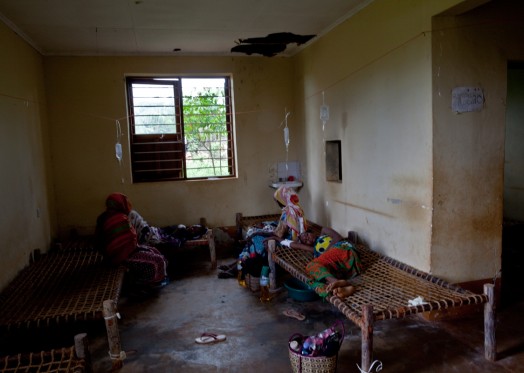I was looking for ivory
but stumbled on cholera

What a place is Zanzibar! I came here following an ivory trail. Chinese traffickers are known to use this city’s crumbling harbour to smuggle elephants’ tusks to the Far East, taking advantage from loose controls and corrupt officers. I was wandering through the narrow streets of ancient Stonetown under a thundering storm, looking for Freddy Mercury’s birthplace and the Sultan’s palace, when I stood in front of the decrepit house of Tippu Tip, the infamous 19th century slave merchant. Memories of Speke&Burton’s search for the Nile’s sources and of the Livingsrone-Stanley saga left me transfixed at the sight. Then Abdul came up with a smile smoking some weed and casually gave me a piece of valuable information: there is a cholera outbreak on the island and nobody is reporting it. Later in my room I checked the web but found just a handful of entries: WHO, AP and the Washington Post. Mmmh…Something must be wrong, better to enquire. I found out that most of the patients are kept in a health center outside town, so I went there. The Chumbuni “hospital” is a run down place with a couple of Unicef’s tents and a concrete low building packed with critically ill people, mostly children. I could smell the chlorine and see the drips with the Hartmann solution before I was gently thrown out. “You must ask permission to Dr. Fadhil” I was told. He is the person in charge. So I went to see him in a faraway office that looks like a dismissed military barrack. And this is what I got from him. The epidemic started last September during the dry season and is by far the most persistent to date, with more than 2,660 infected and 41 dead in the Unguja island and 1,066 infected and 30 dead in Pemba. It spread out from contaminated shallow wells in the squatters’ west district of Zanzibar Town and swept rapidly through the villages and the countryside, gaining ground from March into April with an unusually protracted monsoon span. A week ago the government shut down all the schools up to third degree, all the street food stalls, most of the local restaurants and deployed on the field ten additional doctors from the central hospital and twenty Red Cross nurses.
The lack of information on the epidemic is nonetheless astonishing. “It’s a sensitive issue” hints the tight-lipped Dr. Fadhil. “We have to keep a low profile”. Why? It’s as simple as that: two thirds of Zanzibar’s hard currency earnings stem from the tourist industry and the high season begins in two months. Cellulite-laden white foreigners stuffed with dollars must not be scared away. They deserve to enjoy their peaceful tropical paradise at the lavish Hyatt Hotel in Stonetown, recently built over bulldozed old buildings, or in the fenced luxury beach resorts on the coast. All the rest can surely be left rotting in the rain.





